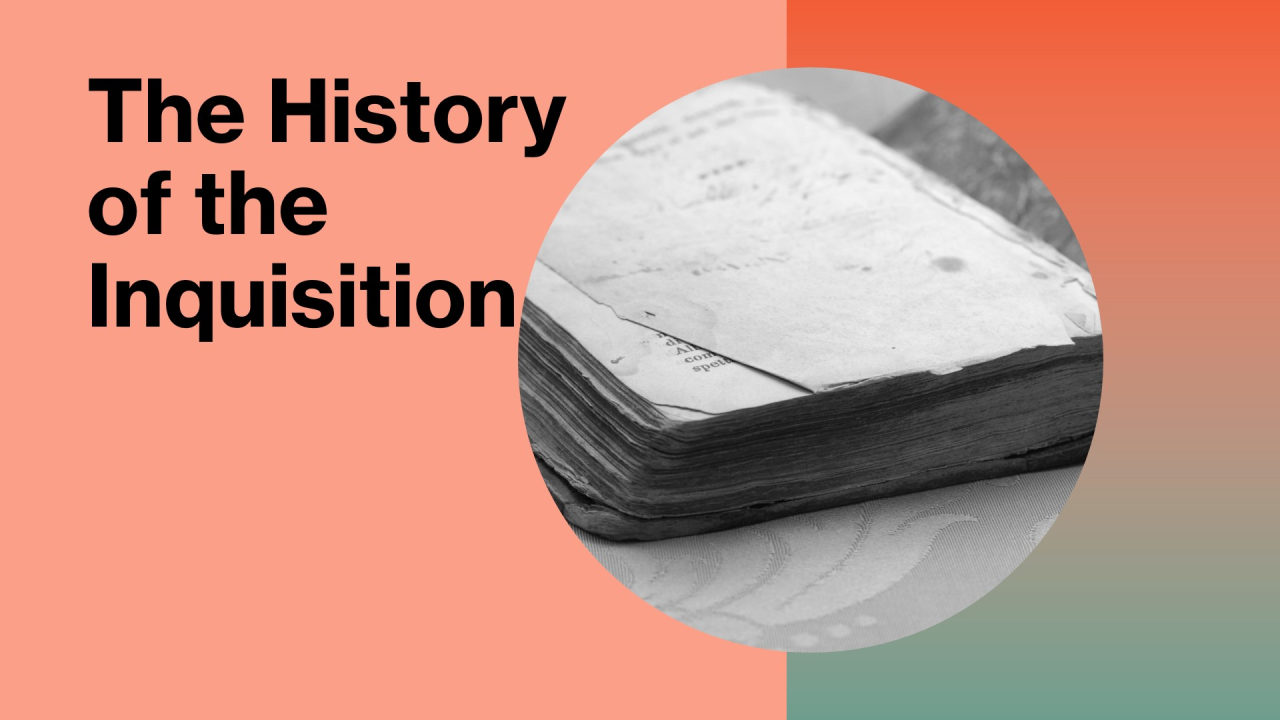
Etymology and Evolution of the Word "Inquisition"
1. Historical journey:
The word "inquisition" has its origins in the Medieval Latin word "inquisitio," which referred to any court process based on Roman law. The term gradually came back into use during the Late Middle Ages. The Inquisition itself was a judicial procedure and a group of institutions within the Catholic Church. It originated in the 12th-century Kingdom of France as a means to combat religious deviation, particularly among groups like the Cathars and the Waldensians. Over time, the Inquisition expanded its scope in response to the Protestant Reformation and the Catholic Counter-Reformation, leading to the establishment of the Roman Inquisition and the spread of inquisitorial courts to other European countries, including Spain and Portugal. The Spanish and Portuguese Inquisitions were particularly focused on the persecution of converted Jews and Muslims.
2. Morphological breakdown:
The word "inquisition" can be dissected into its components: the prefix "in-" meaning "into" or "towards," and the root "quisitio" derived from the Latin verb "quaerere," meaning "to seek" or "to inquire." The suffix "-tion" is a nominalizing suffix that forms a noun from a verb. Together, these components contribute to the meaning and structure of the word, emphasizing the act of seeking or inquiring into matters of heresy or religious deviation.
3. Evolution of usage:
The usage of the word "inquisition" has evolved over time. Initially, it referred to the judicial process employed by the Catholic Church to combat heresy. However, it is important to note that the Inquisition was a judicial process, not an organization. The Inquisition primarily targeted Catholic adherents or converts who were suspected of heretical behavior. While the majority of sentences consisted of penances, unrepentant heretics were handed over to secular authorities for final sentencing, which often resulted in execution or life imprisonment. The Inquisition's focus and methods expanded during the Late Middle Ages and the Renaissance, influenced by the Protestant Reformation and the Catholic Counter-Reformation. The institution of the Inquisition was eventually abolished in the early 19th century, but it continued as part of the Roman Curia under different names.
4. Cultural and literary references:
The Inquisition has been depicted and referenced in various works of literature, art, and music. One notable example is the play "The Grand Inquisitor" by Fyodor Dostoevsky, which explores themes of religious authority and freedom of thought. The Spanish painter Francisco Goya also depicted the horrors of the Inquisition in his artwork, such as his famous painting "The Third of May 1808." These cultural references shed light on the cultural significance and impact of the Inquisition, highlighting its role in shaping historical narratives and artistic expressions.
5. Examples:
- The Inquisition was a powerful institution within the Catholic Church, conducting trials of suspected heretics and combating religious deviation.
- The Roman Inquisition expanded its scope during the Protestant Reformation and the Catholic Counter-Reformation.
- The Spanish and Portuguese Inquisitions targeted converted Jews and Muslims, resulting in widespread persecution.
6. Synonyms:
- Interrogation: Like "inquisition," "interrogation" emphasizes the act of questioning or seeking information, often in a legal or investigative context. However, "interrogation" does not carry the specific historical and religious connotations associated with the Inquisition.
- Examination: "Examination" refers to the act of closely inspecting or questioning someone or something. While it shares similarities with "inquisition" in terms of seeking information, it lacks the religious and historical associations.
- Inquiry: "Inquiry" denotes the act of seeking information or investigating a matter. It shares the root "in-" with "inquisition," emphasizing the act of seeking, but it does not carry the same legal and religious implications.
---
Learn more:
1. [Inquisition - Wikipedia](https://en.wikipedia.org/wiki/Inquisition)
2. [Spanish Inquisition - Wikipedia](https://en.wikipedia.org/wiki/Spanish_Inquisition)
3. [inquisitive | Etymology of inquisitive by etymonline](https://www.etymonline.com/word/inquisitive)
#wordoftheday #etymologylover #linguistics #vocabularybuilding #communication #professionaldevelopment #lifelonglearning #creativity #English #Etymology #WordOrigins #WordOfTheDay #Words #Vocabulary #Language #Linguistics #Learning #Education #Literature #Books #History #Trivia #FunFacts